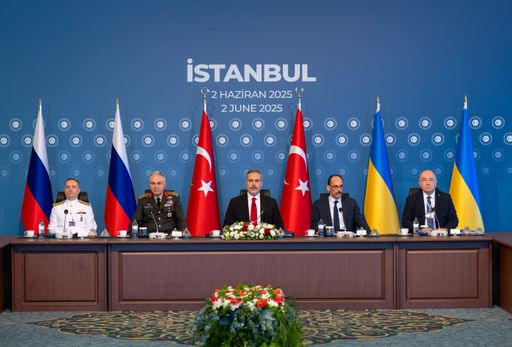Russia and Ukraine carried out another exchange of prisoners of war, the Russian defence ministry has confirmed, though it provided no details on the number of personnel involved.
The swap on Tuesday follows an earlier agreement reached during rare face-to-face talks in Istanbul last week, which led to the release of captured soldiers under the age of 25.
Moscow said the freed Russian servicemen from the latest handover were now in Belarus, which borders both Ukraine and Russia, and would soon return home for medical treatment and rehabilitation.
While the prisoner exchanges offer a rare sign of humanitarian cooperation between the warring sides, broader negotiations remain stalled.
The Istanbul talks marked the first formal diplomatic contact in over three years but the parties did not reach a breakthrough for ceasefire.

'US not a strong mediator'
Meanwhile, Ukrainian President Volodymyr Zelenskyy has said it is his responsibility to lead negotiations with Russia on territorial matters, stressing that Ukraine’s sovereignty is not up for discussion by intermediaries.
“It is my job to hold talks on territories – and (Russian President Vladimir) Putin’s, who seized them (in the ongoing war). I will not discuss my position on this with anyone else,” Zelenskyy said in an interview with Hungarian outlet Valasz Online.
His comments came in response to a question about Ukraine’s willingness to compromise during ongoing peace negotiations with Russia. He confirmed that a memorandum submitted to Moscow during last week’s talks in Istanbul no longer referenced Ukraine’s 1991 borders.
“Our memorandum is the basis for negotiations. Based on this, our delegation has a mandate to discuss humanitarian issues – the issue of prisoners of war and abducted children – or a ceasefire. “However, they do not have a mandate to discuss Ukraine’s sovereignty and territorial integrity. This is our own constitutional matter,” he said.
He called for the involvement of “strong mediators” in future negotiations to ensure Russia adheres to any agreements reached.
“The United States does not appear to be a strong mediator at the moment: the Russians told them not to be at the table, and they simply walked away. Why? Because of their soft policy towards Russia,” he said.
Zelenskyy argued that lasting peace would require pressure from international actors who understand Putin’s “true goals.”
















